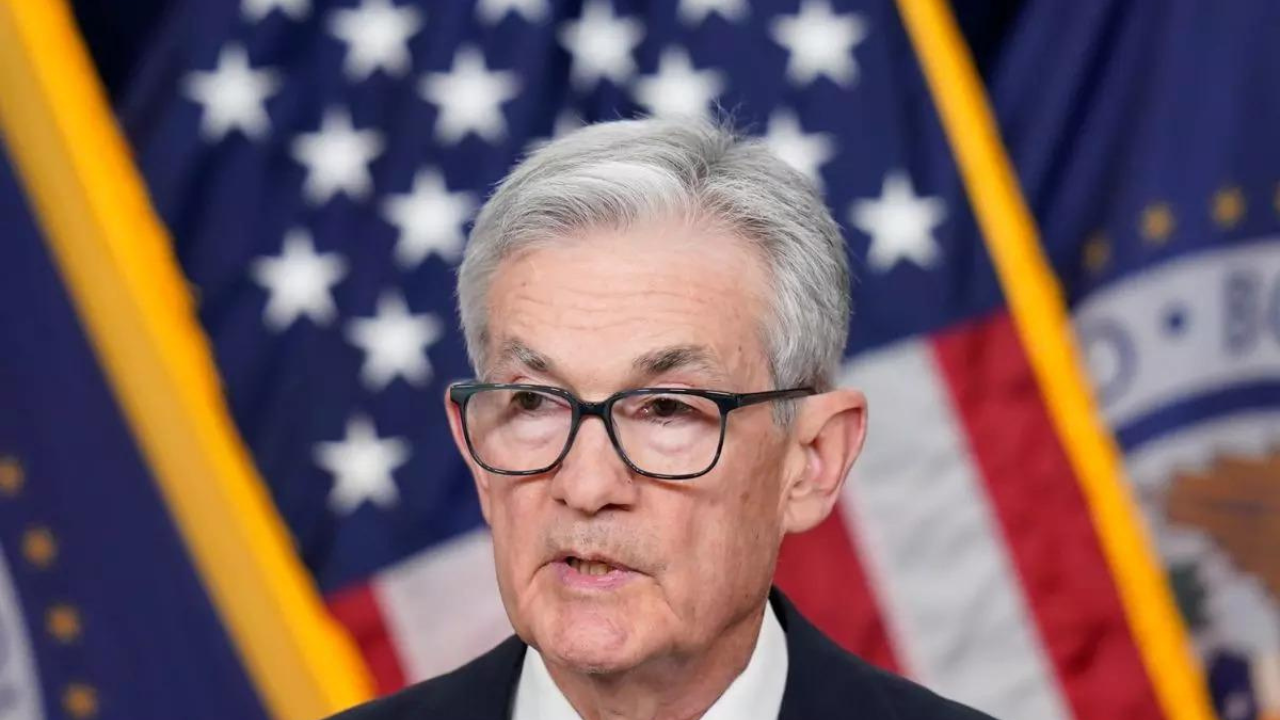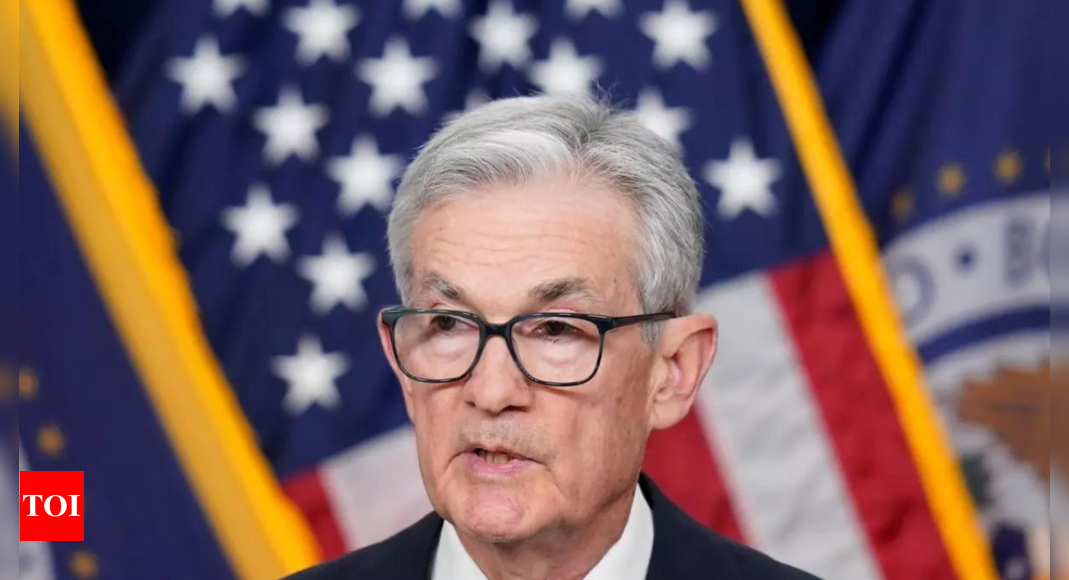
WASHINGTON: The Federal Reserve left interest rates unchanged on Wednesday but took a major step towards lowering them in coming months in a policy statement that tempered inflation concerns with other risks to the economy and dropped a longstanding reference to possible further hikes in borrowing costs.
The U.S. central bank’s latest policy statement gave no hint that a rate cut was imminent, and indeed said the policy-setting Federal Open Market Committee “does not expect it will be appropriate to reduce the target range until it has gained greater confidence that inflation is moving sustainably toward 2%,” the Fed’s inflation target.
“Inflation has eased over the past year, but remains elevated,” the Fed said in the statement after a two-day meeting, restating that officials “remain highly attentive to inflation risks.”
The language will be a blow to investors who have been expecting rate cuts to start as early as March.
But the Fed also nodded to concerns about the employment side of its mission as well, and opened the door to lowering the policy rate if inflation, as expected, continues drifting lower in coming months.
The risks to meeting both the employment and inflation goals “are moving into better balance,” the Fed said, ending roughly two years in which the central bank’s bias has been to moving rates higher and the risks seen as tilted towards those posed by escalating prices.
“In considering any adjustments to the target range for the federal funds rate, the Committee will carefully assess incoming data, the evolving outlook, and the balance of risks,” the FOMC said.
The Fed’s prior statement, issued on Dec. 13, had laid out the conditions under which it would consider “any additional policy firming,” language that excluded any consideration of rate cuts.
No steer for investors
The latest statement, which left the Fed’s benchmark overnight interest rate in the 5.25%-5.50% range, was approved unanimously. Fed Chair Jerome Powell is due to hold a press conference at 2:30 p.m. EST (1930 GMT) to elaborate on the policy decision and economic outlook.
While the statement stopped short of steering investors and the public towards the timing and pace of coming rate cuts, it did mark the current policy rate as the peak of an aggressive monetary tightening cycle that began in March of 2022 when price pressures were ramping up. Inflation peaked at a 40-year high several months later.
Inflation has now been running below the Fed’s target on a seven-month basis while U.S. economic growth and the job market have remained largely intact.
Economic activity “has been expanding at a solid pace,” the Fed said on Wednesday. Job gains “remain strong, and the unemployment rate has remained low.”
Fed officials did not issue new economic projections at their meeting this week. As of the Dec. 12-13 meeting, policymakers envisioned cutting the policy rate by 75 basis points over the course of this year, but they have been reluctant to commit to a start date until there is more data showing inflation has continued its downward trajectory.
The U.S. central bank’s latest policy statement gave no hint that a rate cut was imminent, and indeed said the policy-setting Federal Open Market Committee “does not expect it will be appropriate to reduce the target range until it has gained greater confidence that inflation is moving sustainably toward 2%,” the Fed’s inflation target.
“Inflation has eased over the past year, but remains elevated,” the Fed said in the statement after a two-day meeting, restating that officials “remain highly attentive to inflation risks.”
The language will be a blow to investors who have been expecting rate cuts to start as early as March.
But the Fed also nodded to concerns about the employment side of its mission as well, and opened the door to lowering the policy rate if inflation, as expected, continues drifting lower in coming months.
The risks to meeting both the employment and inflation goals “are moving into better balance,” the Fed said, ending roughly two years in which the central bank’s bias has been to moving rates higher and the risks seen as tilted towards those posed by escalating prices.
“In considering any adjustments to the target range for the federal funds rate, the Committee will carefully assess incoming data, the evolving outlook, and the balance of risks,” the FOMC said.
The Fed’s prior statement, issued on Dec. 13, had laid out the conditions under which it would consider “any additional policy firming,” language that excluded any consideration of rate cuts.
No steer for investors
The latest statement, which left the Fed’s benchmark overnight interest rate in the 5.25%-5.50% range, was approved unanimously. Fed Chair Jerome Powell is due to hold a press conference at 2:30 p.m. EST (1930 GMT) to elaborate on the policy decision and economic outlook.
While the statement stopped short of steering investors and the public towards the timing and pace of coming rate cuts, it did mark the current policy rate as the peak of an aggressive monetary tightening cycle that began in March of 2022 when price pressures were ramping up. Inflation peaked at a 40-year high several months later.
Inflation has now been running below the Fed’s target on a seven-month basis while U.S. economic growth and the job market have remained largely intact.
Economic activity “has been expanding at a solid pace,” the Fed said on Wednesday. Job gains “remain strong, and the unemployment rate has remained low.”
Fed officials did not issue new economic projections at their meeting this week. As of the Dec. 12-13 meeting, policymakers envisioned cutting the policy rate by 75 basis points over the course of this year, but they have been reluctant to commit to a start date until there is more data showing inflation has continued its downward trajectory.
Source link

